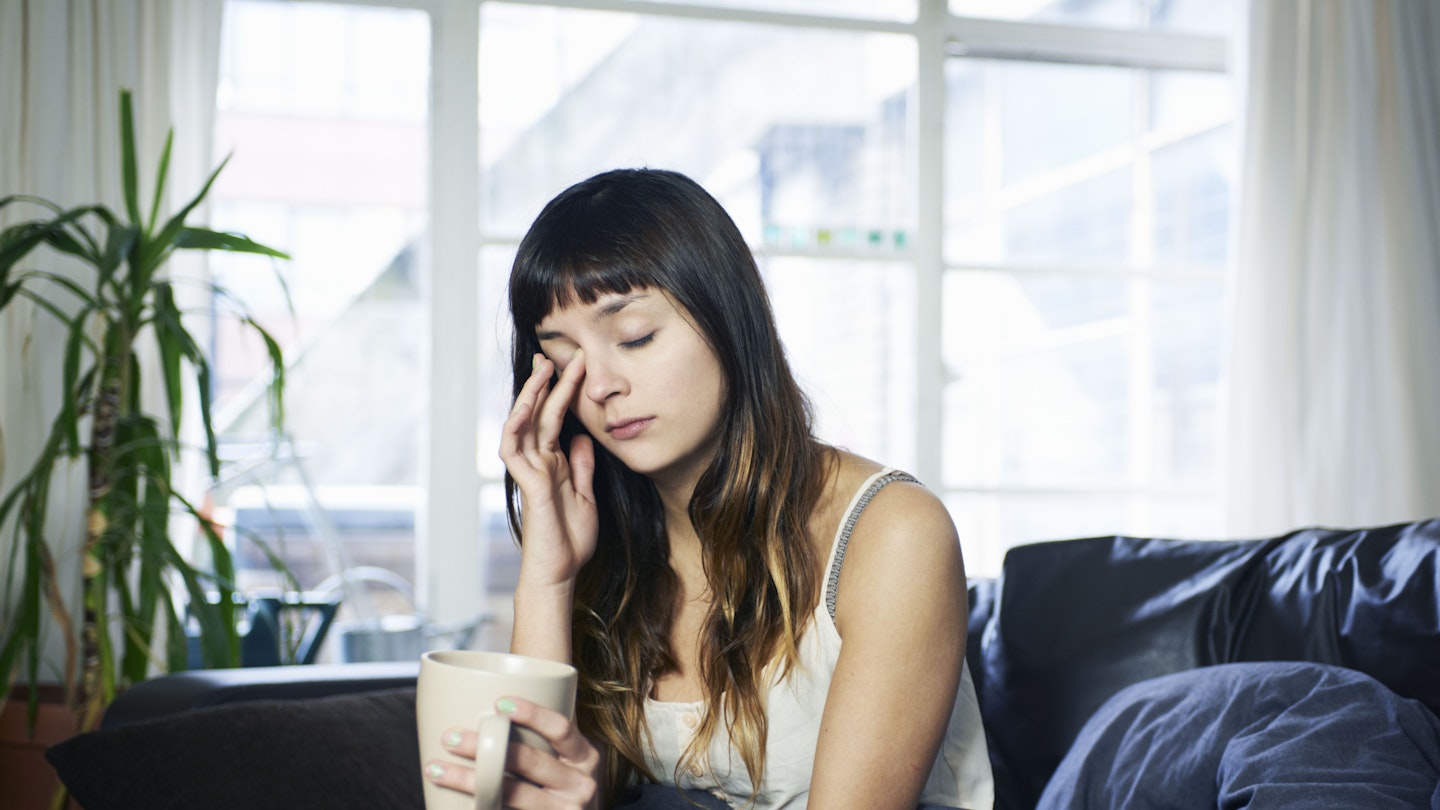There’s no denying it, the last two years have been absolutely exhausting. As we’ve bounced from lockdown to lockdown with uncertainty around social mixing, travel restrictions and mask-wearing, many of us have been left feeling weepy with weariness.
As we approach the two-year anniversary of coronavirus reaching the UK, searches for ‘Why am I always tired?’ are up an overwhelming 500% according to Google trends.
Additionally, one in eight people in the UK are tired ‘all of the time’ a recent YouGov survey revealed. The NHS has even said this state of constant exhaustion is so common that they’ve given it an acronym: ‘TATT’ [Tired All The Time]. So, let's take a look at what's going on.
Why are we tired all the time?
‘For many of us, our bodies have been in crisis mode for over a year,’ said Eachnight sleep expert Jasmin Lee. ‘Dealing with untenable situations such as working full time from home while home-schooling children, the potential grief of losing loved ones to the virus, or simply the grinding loneliness of being unable to meet family and friends face-to-face, which – as human beings – we need for our mental health and stability.’
‘The impact of stress on sleep is well documented and can cause insomnia and impact the deep REM sleep which is essential to real rest,’ she continued. ‘Not getting enough sleep at night due to anxiety can lead to greater tiredness and disruption to mood during the day.
‘For many medical workers on the frontline of the pandemic, the stress and exhaustion of battling the virus has led to "combat fatigue" where depression, burnout, and PTSD symptoms such as nightmares are commonplace as they continue to run on an empty tank.’
Is exhaustion a symptom of Long Covid?
Infections can often result in debilitating tiredness and post-covid tiredness normally settles after ‘2 or 3 weeks,’ NHS guidance states. However, in some people it can ‘linger for weeks or months’.
In fact, your body can continue to respond to coronavirus even after the infection has got better. Additionally, low levels of activity, disrupted routines and sleep patterns can all make the effects of Covid fatigue worse.
Are women more tired than men?
50% of women struggle to fall asleep at night compared to 38% of men, according to YouGov and experts think women taking on various domestic responsibilities, hormones, and suffering with more mental health struggles could contribute to this statistic.
‘It’s multifactorial,’ GP Dr Sam Brown GP from The Bronte Clinic tells Grazia. ‘Changing hormones both during the menstrual cycle and in the perimenopause can affect sleep. Women are often fulfilling many roles during the day – caregiver, worker, wife, mother and with less time for themselves they may purposefully reduce sleep to try and create extra hours in the day or they may struggle to fall asleep due to stress and worry.
‘Depression and anxiety are more common in women, and this can affect their sleep,’ she continued. ‘Women often do not prioritise their own health if they are busy caring for others so may not have time to exercise or practice self-care, which we know can help with sleep. Or they may drink too much alcohol and caffeine to cope with tiredness which can have a negative effect.
‘Tiredness can be caused by so many different factors but stress and low mood are the commonest reason that we see.’
How can you feel less tired?
Knowing all the causes for your exhaustion is all well and good but, ideally, we’d all like some tips and tricks to feel better.
There are numerous hacks to try: Pediatrics Dr Jess Andrade suggests wearing socks to bed cools down your body and tells you it’s time for bed. She also recommends limiting light in your bedroom (from laptops or phone screens) so your body can produce melatonin and assist your circadian rhythm.
Meanwhile, The Sleep Doctor Dr Bruce recommends breathing techniques to help you drift off. When struggling to snooze he advises breathing in for four, holding your breath for seven and breathing out for eight. This encourages your lungs to empty out carbon dioxide and encourages fresh air in so your lungs work less and you can sleep faster.
‘My advice to them [women] would be put on your own oxygen mask first,’ recommends Dr Brown to those of us juggling career and caring responsibilities. ‘Exercise, eat well, try and get into a good sleep pattern... Try and increase exposure to natural daylight during the day and reduce alcohol and caffeine intake.
‘If a physical reason for tiredness is excluded then lifestyle measures, good sleep routine and sometimes CBT or talking therapy can help,’ she added.
Do you need to see a doctor if you’re tired all the time?
After an extended period of exhaustion (coronavirus-related or otherwise), it’s advisable to seek medical help. The NHS recommends seeing a doctor if the fatigue doesn’t change or worsens after 4 weeks.
‘If tiredness is associated with other physical symptoms especially symptoms such as weight loss then urgent tests and referrals are needed,’ Dr Brown added. ‘Blood tests are often needed if you feel chronically tired, to check for things like anaemia, diabetes, thyroid problems, coeliac disease and vitamin deficiencies.’
